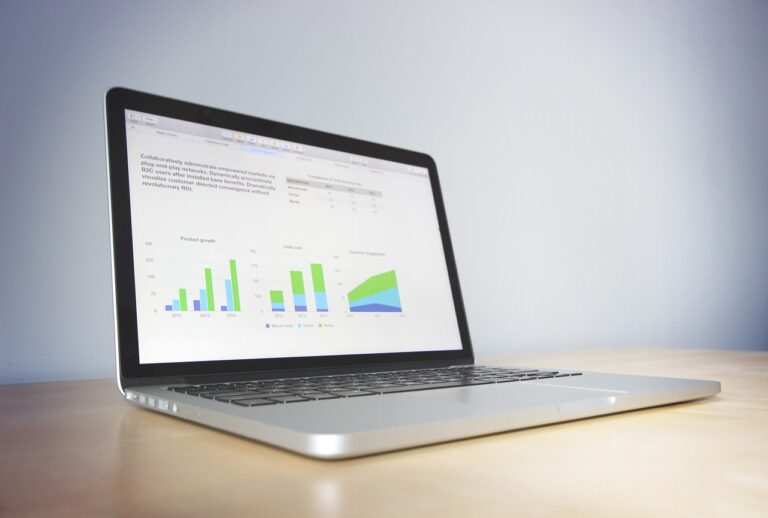The Role of Data Science in Personalized Healthcare
Betstarexch, 12bet: Personalized healthcare has revolutionized the way individuals receive medical treatment. By tailoring healthcare strategies to each person’s unique needs and genetic makeup, personalized medicine aims to enhance patient outcomes and minimize adverse effects. This approach allows healthcare professionals to create targeted treatment plans that are more effective and specific to the individual, leading to improved overall health and wellbeing.
Furthermore, personalized healthcare encourages proactive measures by focusing on prevention rather than just treatment. By analyzing a person’s genetic predispositions and lifestyle factors, healthcare providers can identify potential health risks early on and implement preventive strategies to mitigate these risks. This proactive approach not only improves the quality of care but also empowers individuals to take charge of their health and make informed decisions about their well-being.
Personalized healthcare tailors treatment plans to each individual’s unique needs and genetic makeup
Enhances patient outcomes and minimizes adverse effects
Creates targeted treatment plans that are more effective and specific to the individual
Improves overall health and wellbeing
Encourages proactive measures by focusing on prevention rather than just treatment
Analyzes genetic predispositions and lifestyle factors to identify potential health risks early on
Implements preventive strategies to mitigate these risks
Empowers individuals to take charge of their health and make informed decisions about their well-being
Understanding Big Data in Healthcare
Big data in healthcare refers to the vast amounts of health-related information that are collected every day, including patient records, treatment outcomes, and research findings. This data is complex and varied, making it essential for healthcare professionals to utilize advanced analytical tools to extract valuable insights. By analyzing big data, healthcare providers can identify trends, predict patient outcomes, and improve overall quality of care.
With the rapid advancement of technology, big data analytics has become a crucial tool in driving innovation in the healthcare industry. By leveraging big data, healthcare organizations can tailor treatment plans to individual patients, leading to more personalized and effective care. Additionally, big data can help identify high-risk patients, optimize resource utilization, and streamline healthcare operations. As the healthcare landscape continues to evolve, understanding and effectively utilizing big data will be key in providing better patient outcomes and shaping the future of healthcare.
Utilizing Machine Learning in Healthcare
Machine learning has emerged as a powerful tool in revolutionizing the healthcare industry. By analyzing vast amounts of data, machine learning algorithms can help healthcare providers make more accurate diagnoses, predict patient outcomes, and personalize treatment plans. The ability of machine learning to identify patterns and trends that might not be apparent to human healthcare professionals is invaluable in improving patient care and saving lives.
In addition to diagnosis and treatment, machine learning is also being utilized in healthcare for predictive analytics, drug discovery, image analysis, and even robotic surgeries. These applications of machine learning not only enhance the efficiency and accuracy of healthcare services but also contribute to advancing medical research and technology. As we continue to harness the potential of machine learning in healthcare, the possibilities for improving patient outcomes and revolutionizing the delivery of care are endless.
What is the importance of personalized healthcare?
Personalized healthcare takes into account an individual’s unique characteristics and medical history to provide tailored treatment plans, leading to better outcomes and reduced healthcare costs.
How can machine learning help in healthcare?
Machine learning algorithms can analyze large sets of healthcare data to identify patterns and make predictions, helping healthcare providers diagnose diseases earlier, personalize treatments, and improve patient outcomes.
What is big data in healthcare?
Big data in healthcare refers to the massive amounts of structured and unstructured data generated within the healthcare industry, including patient records, medical imaging, and genomics data, which can be analyzed to uncover valuable insights for improving patient care.
How can healthcare professionals benefit from utilizing machine learning?
Healthcare professionals can benefit from utilizing machine learning by gaining access to advanced tools that can assist in diagnosing diseases, predicting patient outcomes, and optimizing treatment plans based on personalized data-driven insights.
What are some challenges in implementing machine learning in healthcare?
Some challenges in implementing machine learning in healthcare include data privacy concerns, the need for high-quality data for training algorithms, and the integration of new technology with existing healthcare systems.







